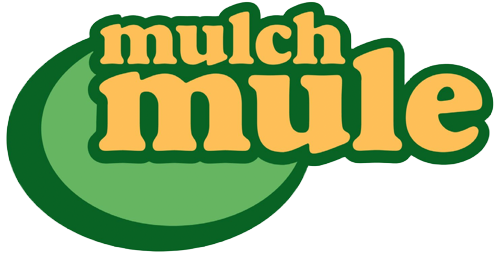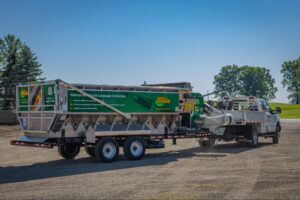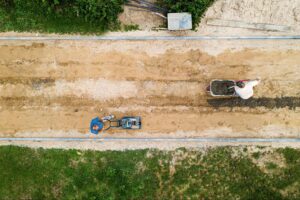The landscaping industry plays a pivotal role in creating and maintaining attractive outdoor spaces, yet it continues to grapple with ongoing labor shortages year-round. While traditional methods of hiring additional seasonal help have served businesses for decades, many companies now face challenges finding skilled, reliable labor through these older channels. Although such traditional methods can still be effective in certain contexts or industries, evolving labor market trends and shifting candidate expectations increasingly require more modern, technology-driven approaches.
One of the most promising solutions is technological innovation. By automating repetitive or physically demanding tasks – such as loading, unloading, and distributing materials like mulch, soil, leaves, stone, and other inputs – landscaping businesses are reducing dependency on manual labor while maintaining high-quality, timely project execution.
In this article, we explore the factors behind the labor shortage, and examine how smart technology and equipment help businesses overcome staffing challenges while driving profitability through improved operational efficiency and smarter resource management.
The Labor Shortage Challenge in Landscaping
Labor shortages in the landscaping industry stem from several factors, including the difficulty of finding skilled workers willing to perform often physical, outdoor tasks, increased competition for workers from other industries, and a shrinking pool of younger candidates entering labor-intensive fields. These issues can lead to project delays, higher labor costs, and additional pressure on existing teams. Although traditional seasonal hiring methods still function in some situations, many landscape businesses find that modern recruitment and retention strategies are needed to meet today’s unique challenges.
How Landscaping Technology Can Address Labor Shortages
Innovative equipment and automation are proving central in managing labor shortages. By reducing the requirement for extensive manual lifting and repetitive work, digital tools empower companies to do more with fewer employees. Automated systems designed for routine tasks free up staff to focus on activities that require human judgment and creativity, such as design consultations and maintenance planning.
For instance, systems featuring advanced material-handling solutions help shorten loading and unloading times, minimize downtime, and reduce overall labor expenses. Many companies report that the efficiency gains, cost savings, and improved safety from modernized operations can help recoup the initial investment relatively quickly – though the actual payback period depends on project scope and local operating conditions.
Bulk handling solutions often incorporate live floor systems that reduce the need for manual shoveling and wheelbarrow transport. Such technology not only speeds up material distribution but also limits physical strain on workers, allowing for timed project completion and consistent service quality. Some systems offer advanced forward and reverse functions for precise control during material flow.
The Benefits of the Mulch Mule in Combating Landscaping Labor Shortages
The Mulch Mule Trailer is an innovative solution that directly addresses the labor shortages in the landscaping industry by reducing the dependency on manual labor and enhancing operational efficiency. Below are the key benefits that make the Mulch Mule an effective tool in mitigating the impact of labor shortages:
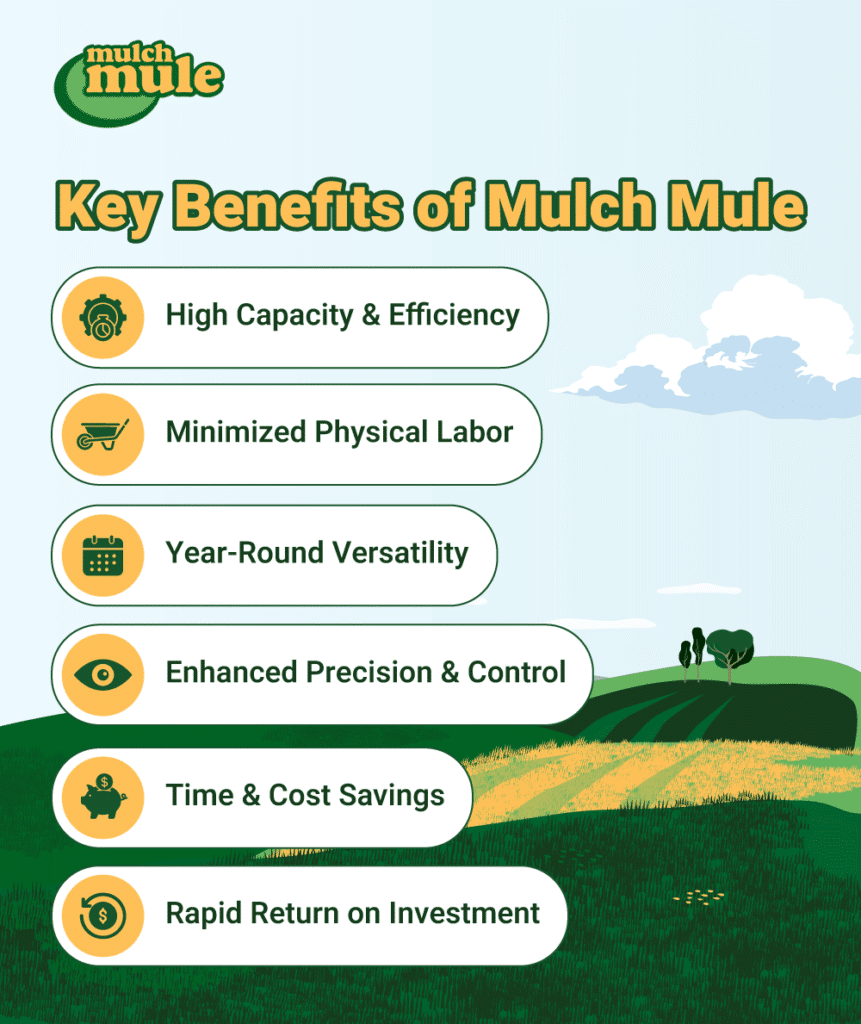
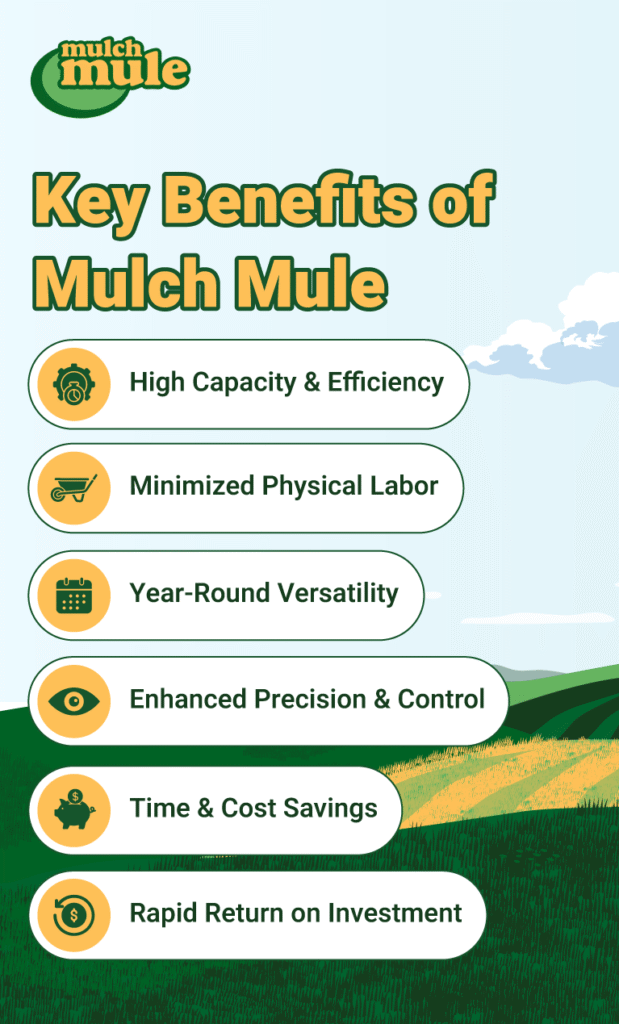
High Capacity and Efficiency
The Mulch Mule is equipped with a 15 cubic yard aluminum hopper, one of the largest in its class, permitting the carriage of substantial material on each trip. Its robust live floor system enables swift discharge of materials in as little as 45 seconds, vastly reducing the time spent on tasks that typically require multiple workers. The tarping system also contains debris, ensuring a cleaner work area.
While many businesses find that these efficiencies can help recoup initial outlay relatively quickly, it remains important to evaluate the return on investment based on individual project requirements and operating conditions.
Minimized Physical Labor
By automating manual material handling, equipment like the Mulch Mule Trailer allows businesses to allocate labor more effectively. Instead of spending hours on tasks like shoveling or hauling mulch by hand, crews can concentrate on design details and high-skill landscaping activities. Although many traditional methods can still be useful in some situations, technology offers a strategic alternative when labor is scarce.
Reliance on less manual shoveling and wheelbarrow transport significantly lessens the physical strain on workers, allowing them to redirect their efforts to more complex tasks that require human insight, such as strategic planning and client interactions.
Reducing manual labor not only decreases the risk of injuries but also improves employee morale and overall productivity. Fewer physically strenuous tasks mean a healthier workforce, which in turn translates into reliable, high-quality work. Safety protocols consistently benefit from technological assistance, further boosting employee confidence.
Year-Round Versatility
Mulch Mule offers several attachments to further streamline landscaping tasks. Rather than requiring different tools for different seasons, the Mulch Mule Trailer is designed to serve throughout the year. Its versatility allows it to transport and distribute a variety of materials—from mulch and leaves to stone and aggregate—ensuring that equipment utilization remains high regardless of seasonal fluctuations.
Optional attachments like the vacuum debris loader allow the Mulch Mule to efficiently gather leaves and other debris, making it functional across different seasons and types of projects. Curbside discharge chute direct materials precisely where needed. Likewise the remote control helps operate functions from a distance, creating more efficiency and precision on the jobsite.
By integrating the right combination of features, landscaping companies can tailor their Mulch Mule Trailer to meet the distinct requirements of residential, commercial, or municipal projects, thereby maximizing their return on investment even as outcomes vary by context.
Enhanced Precision and Control
Advanced systems, such a s the remote control system, offer functions for precise control of material flow, reducing waste and ensuring a uniform spread, which enhances project quality with fewer errors and rework.
The implementation of advanced landscaping systems significantly heightens precision and control throughout operations, contributing to exceptional project outcomes. Below are key factors and benefits supporting this enhanced capability. These technologies provide operators with live data to make informed decisions, ensuring resources are allocated efficiently and effectively. Advanced controls also minimize over-application of materials such as mulch or soil, leading to cost savings and sustainable practices.
Fine-tuned machinery settings allow for tailored application processes, maximizing the use of available resources. Operators can customize material distribution to fit specific project needs, whether they entail delicate garden features or large public spaces.
By harnessing the power of enhanced precision and control technologies, landscaping companies can achieve meticulous operational execution, translating into superior service delivery and competitive advantage in an industry facing labor challenges.
Time and Cost Savings
The Mulch Mule provides significant efficiencies that are pivotal in addressing the labor shortages plaguing the landscaping industry. One of the primary ways it contributes to time savings is through its advanced material handling capabilities. The live floor system enables the rapid discharge of materials, which completes in a fraction of the time compared to manual methods. This feature alone allows businesses to finish jobs quicker and move on to the next project with minimal downtime. This efficiency ensures that a greater volume of work can be completed within the same time frame, maximizing the productivity of the existing workforce.
Another critical aspect of the Mulch Mule’s effectiveness is its ability to operate with fewer team members. The automation of labor-intensive tasks, such as loading, unloading, and spreading materials, reduces the need for manual labor significantly. This means that smaller crews can manage larger projects without sacrificing quality or increasing completion times. As a result, companies can take on more contracts simultaneously without the stress of hiring additional staff, ultimately lowering overhead costs.
These operational efficiencies not only allow firms to adapt to labor shortages but also empower them to remain competitive and profitable. The combination of increased job throughput and reduced staffing requirements translates to significant cost savings. This dual advantage helps businesses stay resilient in a market where labor costs are rising due to scarcity of manpower. By keeping operational expenses in check, landscaping companies can reinvest savings into growth initiatives, further enhancing their market presence and service offerings.
Rapid Return on Investment
Implementing the Mulch Mule is not merely an operational upgrade, it’s a strategic investment that yields significant financial benefits over time. Many landscaping companies initially view the Mulch Mule as a considerable upfront investment. However, the equipment’s immediate efficiency gains quickly justify the expenditure, offering a rapid return on investment that bolsters financial stability amidst labor challenges.
On top of the more immediate operational efficiency and reduced labor cost benefits, there are long-term financial gains. With reduced dependency on fluctuating labor availability, businesses stabilize their cash flow, even as employee costs rise due to competitive employment markets. The profitability derived from minimizing physical labor and optimizing workforce utilization can be reinvested in business growth, such as expanding service offerings or improving customer relations. Indirectly, this investment also slashes costs related to workplace injuries by minimizing strenuous manual labor. A safer work environment promotes higher employee morale and retention, decreasing recruitment costs and ensuring consistent job quality.
Watch the Mulch Mule in Action
Overall, the Mulch Mule transforms potential financial risk into opportunity by enabling landscaping businesses to efficiently leverage their existing workforce, overcoming labor shortages while enhancing profitability. The equipment is an invaluable asset that aligns with long-term strategic objectives, fostering sustainable growth and a competitive edge in an increasingly dynamic market.
Leveraging the Mulch Mule and similar technologies, landscaping businesses can address the labor shortages effectively. By freeing human resources to focus on tasks that require creativity and judgment, companies can maintain project quality and profitability in an increasingly competitive environment.
Moving and distributing materials is a labor-intensive task. The Mulch Mule is designed from the ground up for management of all types of bulk material and engineered to efficiently automate those back-breaking tasks.
Watch the video below to learn how Mulch Mule can take the load off your employees and pay for itself in the long run by increasing overall profits for your business over time.
Real-World Applications for the Mulch Mule
Landscaping professionals across various sectors have discovered the transformative benefits of the Mulch Mule Trailer:
- Commercial property contractors leverage the trailer to efficiently manage large acreage projects.
- Golf course and park managers utilize the equipment for routine maintenance tasks, such as leaf collection or mulch distribution.
- Material yards employ the trailer’s rapid cycle performance to ensure faster turnaround times.
- Nurseries and garden centers use these systems to maintain consistent product quality while reducing labor intensity.
These examples underscore how adopting advanced equipment not only mitigates labor shortages but also drives operational efficiencies.
Embracing modern equipment does not necessarily mean abandoning traditional methods entirely. In scenarios where personal interaction remains crucial—for instance, when tailoring services to client-specific preferences—many businesses continue to rely on elements of traditional service while integrating technology to supplement their labor force. This balanced approach ensures that while technology enhances efficiency, the human touch is preserved where it matters most.
Embrace the Future of Landscaping with Smart Technology
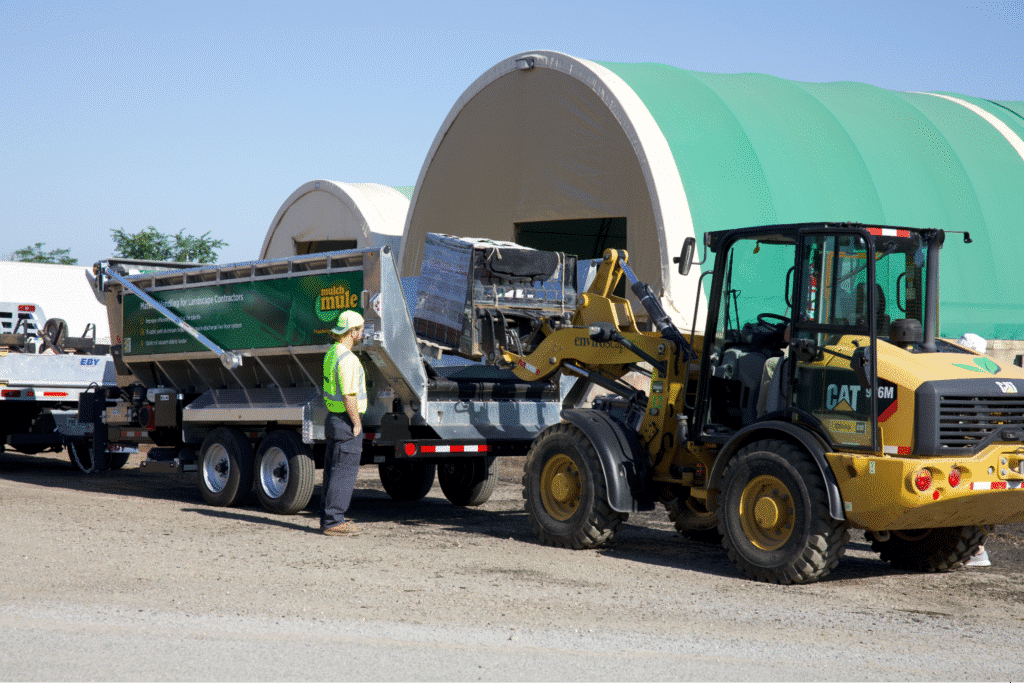
Addressing the landscaping labor shortage requires a thoughtful blend of strategy and innovation. Although traditional seasonal hiring methods can still work in certain contexts, many businesses find that they increasingly need modern, automated solutions to attract and retain skilled labor and streamline operations. The Mulch Mule Trailer and similar advanced systems offer powerful ways to reduce the strain on smaller crews, expedite project timelines, enhance profitability, and improve safety—potentially recouping investments quickly when conditions are favorable.
If you’re ready to explore technology-driven solutions for your company, get a quote today or set up a demo to experience the Mulch Mule Trailer in action firsthand. Modernize your operations, empower your workforce, and build a more resilient future in the landscaping industry.
